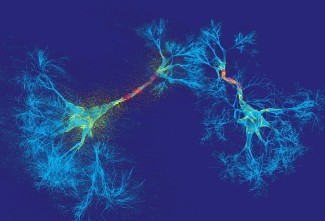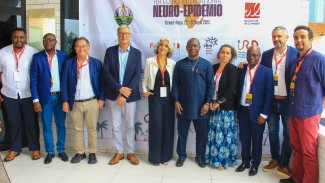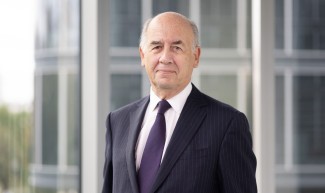Violetta Zujovic, Olga Corti and Stéphane Hunot, researchers at Institut du Cerveau - ICM, obtained an important grant from the Sanofi Innovation Awards (iAwards) programme for their research.
The Sanofi Innovation Awards (iAwards) program supports the development of early stage innovative and translational research projects which could lead to effective and safer therapeutic solutions for patients in different pathologies. Then, the idea is to to convert successful projects to sponsored research programs and subsequently create in-licensing and start-up opportunities.
This year, 3 Institut du Cerveau - ICM researchers have obtained this important support for their projects: Violetta Zujovic, Olga Corti, and Stéphane Hunot.
The projects
COMPuting and ASSessing biological networks in Multiple Sclerosis patients macrophages - COMPASS in MS (Violetta Zujovic)
Multiple sclerosis (MS) is an autoimmune disease, which is characterized by inflammation in the central nervous system and demyelination, leading to axonal degeneration. While demyelinated axons can be remyelinated through an endogenous process, this capacity varies greatly between patients. Since macrophages contribute to demyelination but also orchestrate remyelination, we aim to identify potential intrinsic defects in macrophages’ response to pro-inflammatory and -regenerative signals to determine if this contributes to remyelination failure.
Combining transcriptomic, functionality of MS patient macrophages and patient’s clinical data through multivariate analyses and network-generating algorithms, we plan to define the dysregulated genes and the potential targets that can correct the network. Our ambition is to develop powerful mathematical tools, enabling to reprogram “in silico” specific biological networks in order to maximize macrophage activation towards a “patient specific” regenerative phenotype.
Targeting inflammasome overactivation in Parkinson's disease (Olga Corti and Jean-Christophe Corvol)
Parkinson’s disease (PD) is a multifactorial neurodegenerative disorder involving several pathogenic mechanisms, including neuroinflammation and mitochondrial dysfunction. There is significant clinical and pathophysiological heterogeneity among PD patients. Stratification according to physiopathological profiles based on meaningful biomarkers is key to the development of new clinical trials and therapeutic solutions adapted to each patient.
The PD-linked gene PARK2/Parkin plays a pivotal role in the regulation of mitochondrial quality control and has emerged as a key regulator of innate immune responses. Recent work by the team demonstrated that Parkin deficiency is associated with NRLP3 inflammasome overactivation. This defect is caused by deregulation of a major negative feedback loop mediated by a specific target that restricts inflammasome activity. It has been previously shown that this target is expressed at detectable levels in the blood.
The project of the team led by Olga Corti and Jean-Christophe Corvol aims to validate the newly identified target involved in NLRP3 inflammasome restriction as potential biomarker for stratifying subgroups of PD patients with a neuroinflammatory profile. This approach will provide an entry point towards personalized treatment targeting the NRLP3 inflammasome in PD. Once validated, the target may serve as a companion biomarker to assess of the therapeutic efficacy of drugs targeting the inflammasome.
Identification and validation of targets and markers of Parkinson's disease-associated neuroinflammation (Stéphane Hunot)
Among the mechanisms occurring in PD, misfolding and aggregation of alpha-synuclein is thought to play an important role in neurodegeneration. However, the correlation between synucleinopathy and neuronal death in PD brain is rather weak. Therefore, cellular context and non-cell autonomous mechanisms may also play a critical role.
In PD, mounting evidence suggests that α-Syn assemblies could be central to microglial cell activation and pathological inflammatory responses. Microglia cells perform a number of physiological functions important for the maintenance of tissue homeostasis. Yet, chronic stimulation causes microglial cells to get activated and generate an immune response potentially harmful for neurons. It is crucial to define and understand the mechanisms that shape microglial cell polarization to design tools to therapeutically modulate this response in a beneficial orientation.
The overall objective of Stéphane Hunot and his team is to identify and validate molecular targets and functions linked to microglial cell activation under PD-specific stimulatory and inflammatory conditions. To reach this goal, they will develop a cellular model of PD- and chronic-type inflammation, conduct unbiased analysis of molecular changes through multimodal omics approach by combining transcriptomics (RNAseq) and metabolomics and eventually validate the most robust markers in patient-derived biological material.







